Oracle Conversion Settings
This is a deprecated version of the SnowConvert documentation, please visit the official site HERE.
General Conversion Settings
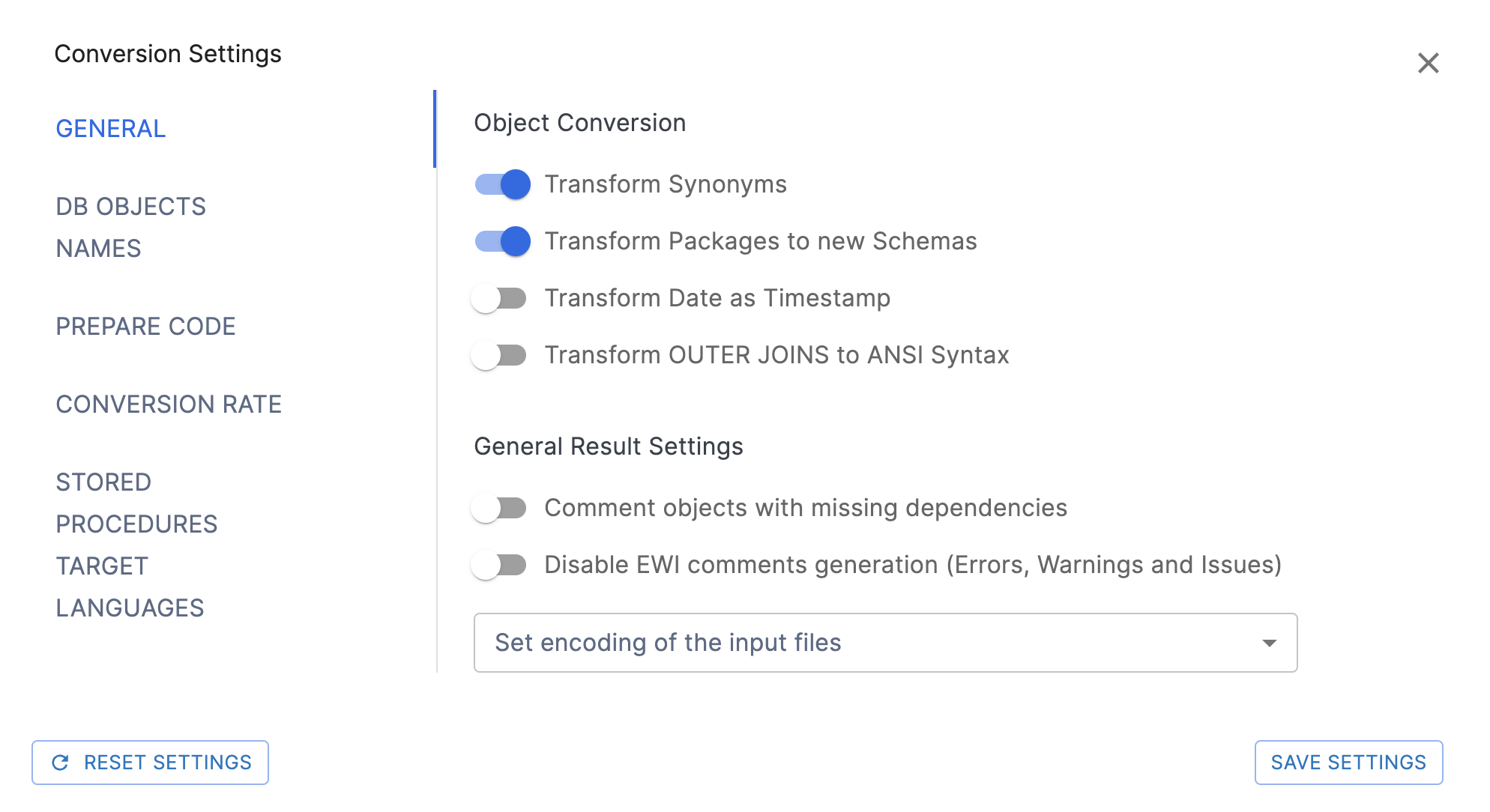
Transform Synonyms: Flag to indicate whether or not Synonyms should be transformed. By default, it's set to true.
Transform Packages to new Schemas: Flag to indicate whether or not the Packages should be transformed to new Schemas.
Please check the naming of the procedure enabling and disabling the flag:
Transform Date as Timestamp:
Flag to indicate whether
SYSDATEshould be transformed intoCURRENT_DATEorCURRENT_TIMESTAMP. This will also affect allDATEcolumns that will be transformed toTIMESTAMP.Transform OUTER JOINS to ANSI Syntax: Flag to indicate whether Outer Joins should be transformed to only ANSI syntax.
Comment objects with missing dependencies: Flag to indicate if the user wants to comment on nodes that have missing dependencies.
Disable EWI comments generation (errors, warnings and issues): Flag to indicate whether EWIs comments (Errors, Warnings, and Issues) will not be generated on the converted code. The default is false.
Set encoding of the input files: The encoding code page number is used for parsing the source files. We only accept encodings supported by .NET Core. Here are the ones supported at the moment:
Code Page
Name
Display Name
1200
utf-16
Unicode
1201D
unicodeFFFE
Unicode (Big endian)
12000
utf-32
Unicode (UTF-32)
12001
utf-32BE
Unicode (UTF-32 Big endian)
20127
us-ascii
US-ASCII
28591
iso-8859-1
Western European (ISO)
65000
utf-7
Unicode (UTF-7). Not available in .NET 5
65001
utf-8
Unicode (UTF-8). Default encoding
To review the Settings that apply to all supported languages, go to the following article.
DB Objects Names Settings
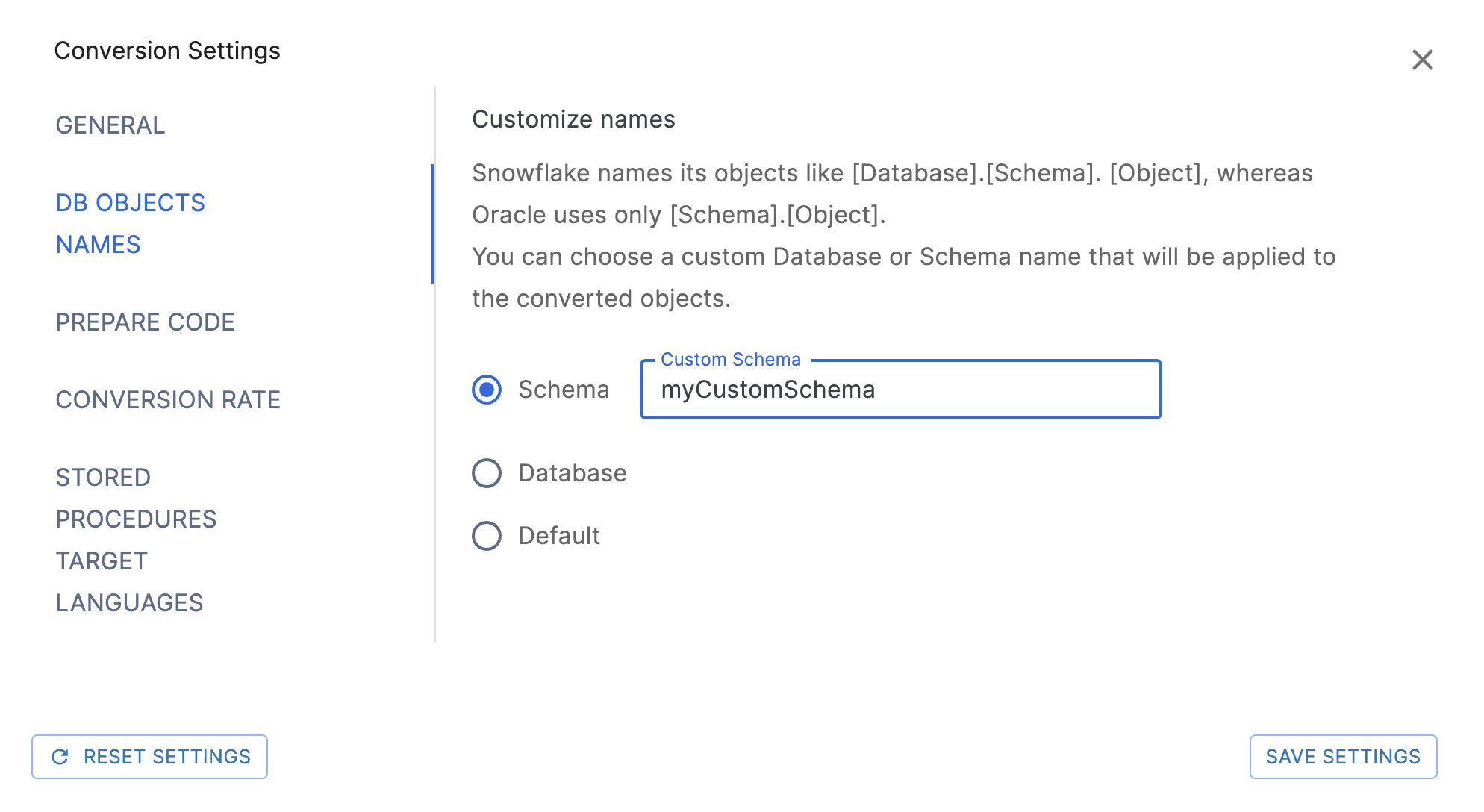
Schema: The string value specifies the custom schema name to apply. If not specified, the original database name will be used. Example: DB1.myCustomSchema.Table1.
Database: The string value specifies the custom database name to apply. Example: MyCustomDB.PUBLIC.Table1.
Default: None of the above settings will be used in the object names.
Prepare Code Settings
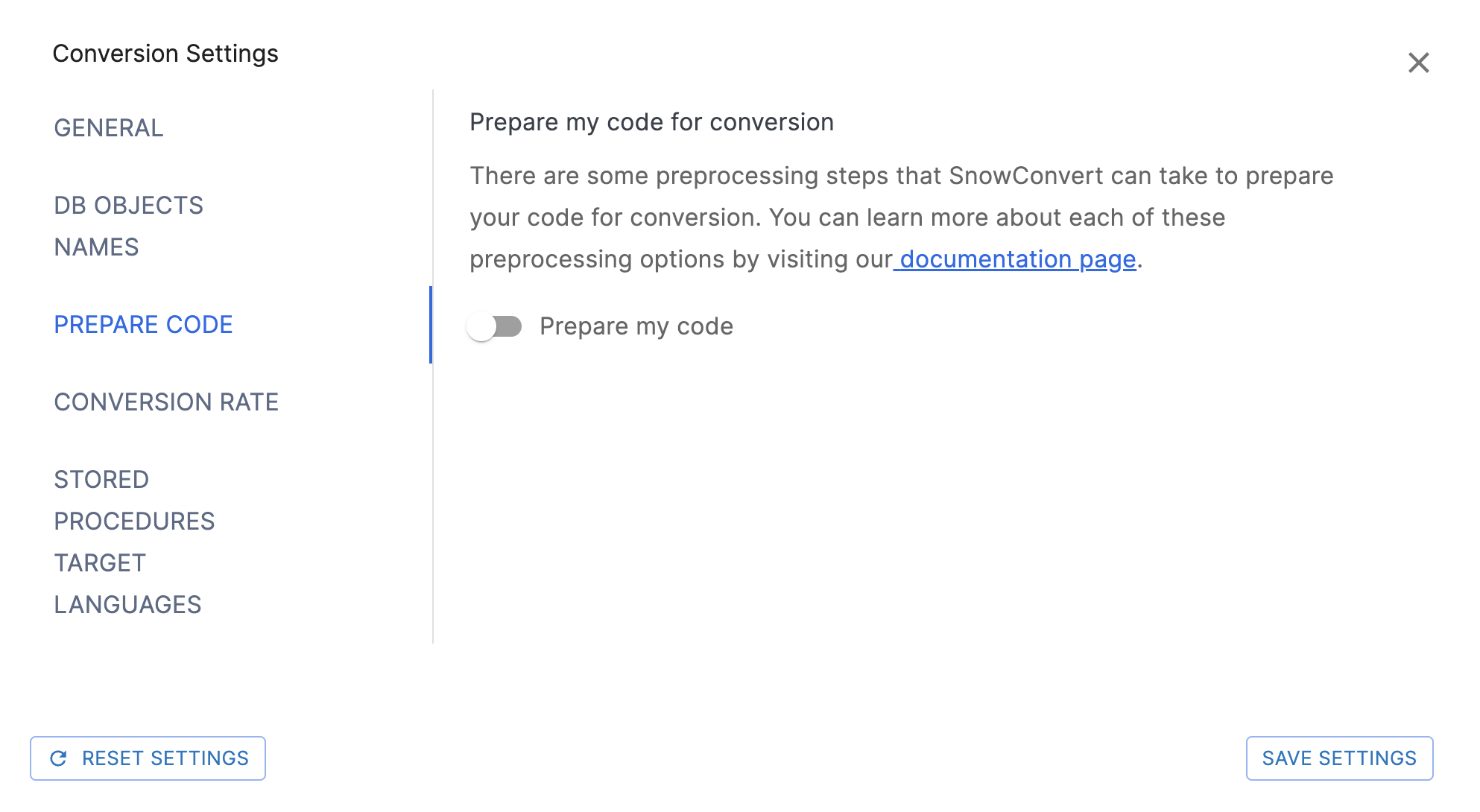
Prepare my code: Flag to indicate whether the input code should be processed before parsing and transformation.
Conversion Rate Settings
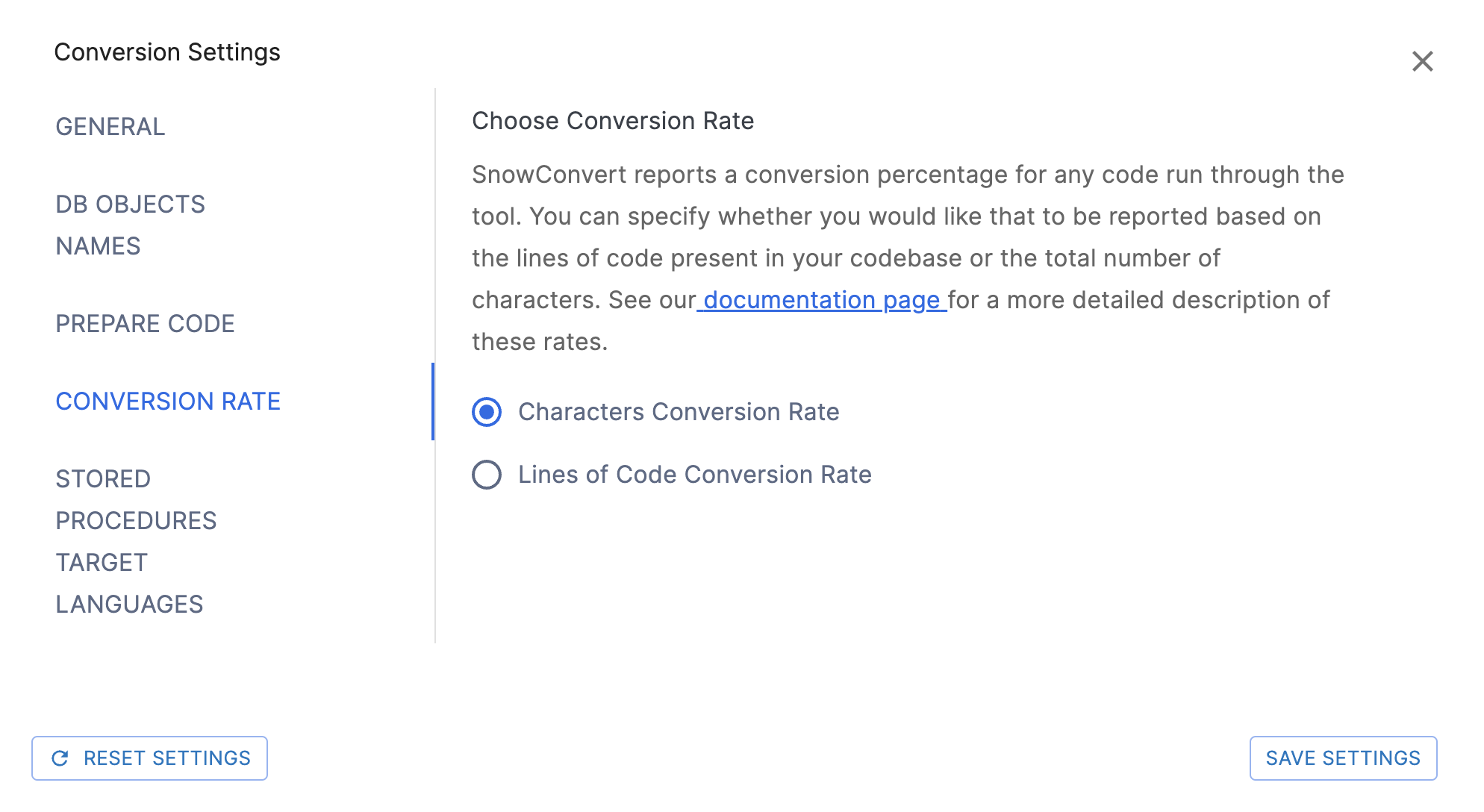
On this page, you can choose whether the successfully converted code percentage is calculated using lines of code or using the total number of characters. The character conversion rate is the default option. You can read the entire rate documentation on the documentation page.
Stored Procedures Target Languages Settings
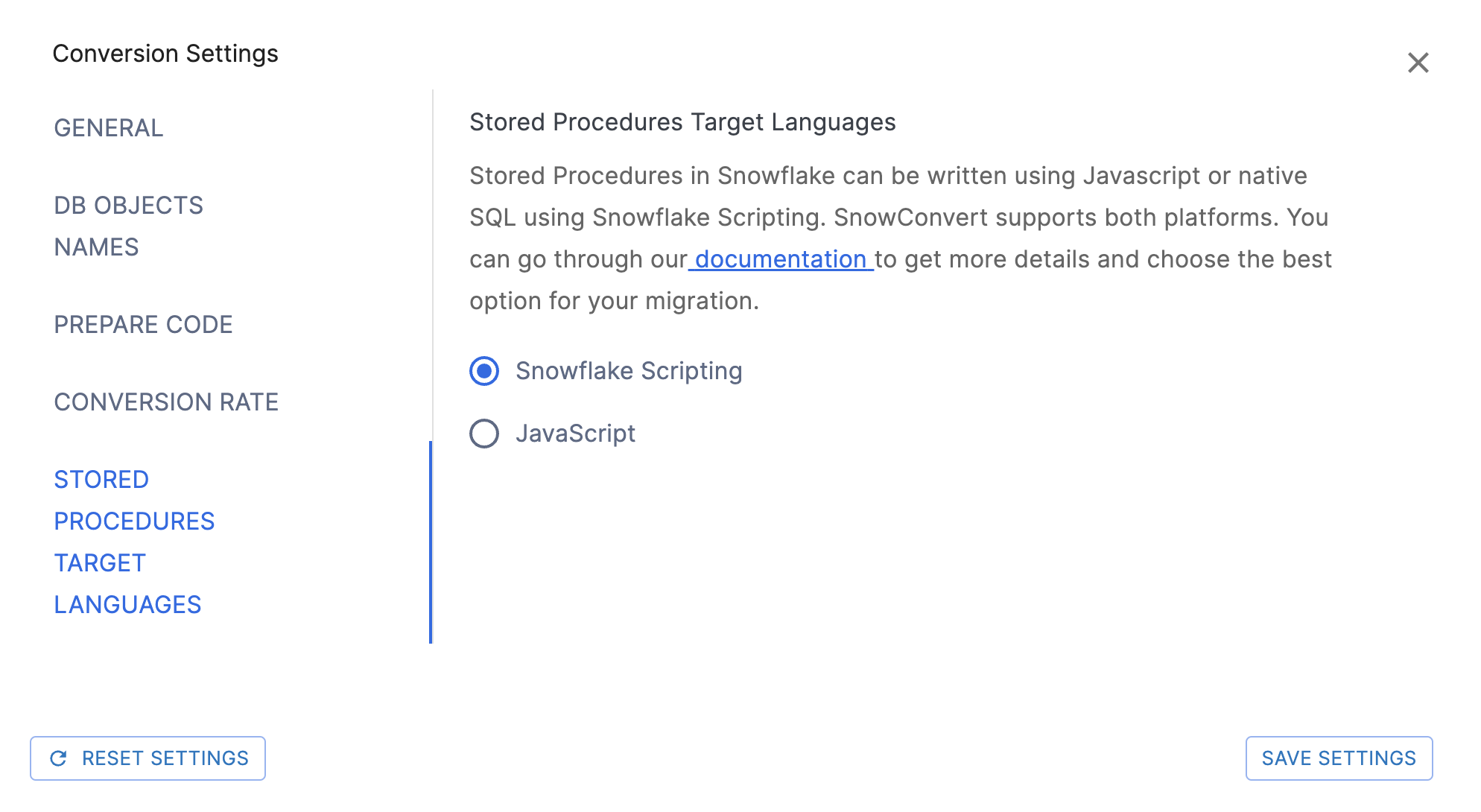
On this page, you can choose whether stored procedures are migrated to JavaScript embedded in Snow SQL, or to Snowflake Scripting. The default option is Snowflake Scripting.
Reset Settings: The reset settings option appears on every page. If you've made changes, you can reset SnowConvert to its original default settings.
Last updated
